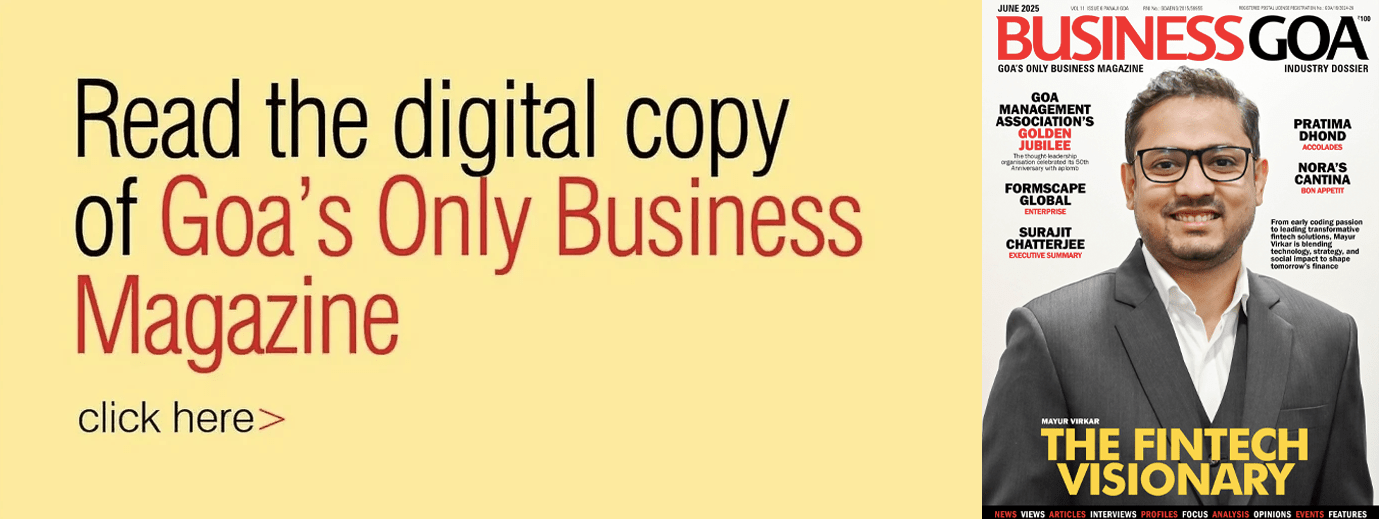
Shailesh Amonkar speaks on how the pandemic has affected the media; and suggests new strategies to attract consumers and to stay relevant
It is frequently stated that the media adores a crisis! A virus that began in November 2019 and was expected to run its course in a few months will soon celebrate its second anniversary, and all hopes are that by the end of this year or the first quarter of next calendar year, this crisis will be a distant memory, if not still very much a part of our lives.
We are all in uncharted ground during these challenging times. Anyone who claims to know what will happen to the corona virus outbreak, the global economy, or the media in the coming years is simply lying.
We can definitely anticipate and claim that digital transformation has gained traction in practically all industries and enterprises during the previous several years, and will continue to do so in the years ahead.
Media is an enormously vibrant sector that has always welcomed any challenge, whether it is content digitization, social media’s ascent, mobile consumption, or now this deadly corona virus. Even while for many firms’ starting lines will be the same, there are tremendous opportunities now, and how media organisations adapt and change at a rapid speed will have a substantial impact on future performance.
The role of the media in informing, educating, connecting, and entertaining society has been demonstrated to be successful. If a media ecosystem is to be financially effective and sustainable, it must be guided carefully.
Being at home has resulted in a significant increase in ‘at-home’ media consumption. Every day, new strategies to reach consumers are being developed. One thing that has stayed constant is the media’s role in keeping us informed while also entertaining us.
Furthermore, consumers must determine who they can trust, which for many, means going to established media
companies rather than social media buzz.
Because the internet has a global audience and low distribution costs, every publisher and distributor wants a piece of the advertising pie and the attention and the mind space of consumers. Consumers have become accustomed to paying for items that they value, and media corporations have begun to benefit from premium content. This metric of paying consumers is critical to a company’s longterm viability.
Media companies have begun to pay attention to virtual events and conferences. There will certainly be additional obstacles to overcome, particularly in choosing the appropriate technology platform for these tasks. There is a variety of choices for hosting these events nowadays, including well known communication tools like Skype and Google GChat to more sophisticated solutions such as Zoom, Webex, Shindig, etc.
Getting the technology right is crucial to holding these virtual events.
In terms of customers and businesses, social buying has been around for a while, and it is now crucial that sales professionals begin acquiring the critical skill set required to succeed in social selling.
The pandemic has brought the importance of social selling procedures and talents into sharp focus.
The media industry places a high emphasis on engagement, and media companies excel in this area.
Given the abundance of content providers available today, it is not a surprise that customer engagement is strong. A large percentage of customers watch or listen to news and entertainment for twenty-four hours every week.
Because many media firms recover their content production costs through advertising, the longer the disruption lasts, the more advertising revenue they will lose.
To achieve its financial goals and remain relevant in the future, the sector must constantly innovate and uncover new financial models to assist them in achieving their financial goals while also keeping consumers informed and engaged.
The media will emerge stronger than ever from this crisis.
The Columnist is the CEO and Founder of Kemistry Media Solutions Pvt. Ltd. a media consulting company. Shailesh has an extensive media background in advertising sales, new product development, market research and new media. His passion for media selling, persistence, and close to 3 decades in revenue generation, profit centre management, experiential marketing and brand building at leading media conglomerates have nearly always resulted in double-digit growth by garnering millions of dollars in print and digital advertising sales





